Visit the film’s official website!
Bilbo or Frodo? Sauron or Saruman? 48 frames per second or 24 frames per second?
It turns out that none of these binaries are particularly pertinent to the reception that the first third of the mega epic that is The Hobbit trilogy will receive. The real battle roayle (as it were) is between Peter Jackson and J.R.R. Tolkien.
Fans of the book will cry foul at some of the things that have been left out for expediency’s sake and will cry doubly (or triply) foul for the addition of character and story elements that Tolkien never conceived of in what is basically a children’s adventure story.
But literary purists know they are vastly outnumbered by the legions of non-Tolkienites that will have gladly surrendered well over a billion (or two) dollars to Warner Bros. by the time the last film releases in 2014. A Peter Jackson trilogy set in Middle Earth and in the shadow of Gandalf has attained the status of pseudo religion as far as cinephiles, science fiction nerds, and fantasy devotees are concerned. Tolkien has fashioned a story so gripping and so universal that it now stands as the most awaited cinematic event 75 years after it was first published. Imagine telling a publisher that in 1937.
And yet, for all its narrative power, Peter Jackson will have supplanted the name of Tolkien in the minds and hearts of all who will see this film and wonder how such a fantastical world with such amazing characters and heart-rending themes could come to be. Blame the power of mass media entertainment, blame the fact that Harry Potter is the real fantasy hero of the last 100 years – heck, blame the fact that Tolkien seemed to have written the adventures of Bilbo and Frodo in an almost indecipherable, esoteric, and overwrought manner that no one outside an Ivy League English department would dare read the stories for their own sake in 2012.
The first thing that comes across in The Hobbit is not its technical proficiency. Yes, it is visually stunning, and the CGI is even better than in The Return of the King (especially where Gollum/Smeagol is concerned), but above all the movie reminds us that its makers have attempted to retell the story with reverence for both the words and the spirit of the source material. It is, in essence, a homage to Tolkien and the world he created. Jackson got it right the first time around; he does much the same this time as well.
And yet the movie, to be perfectly and unabashedly frank, doesn’t feel much like Tolkien. It’s more idyllic than rustic, more fantasy than farce, and more poetry than prose. That may be the way Jackson wanted it – he has, after all, trademarked his own special brand of Middle Earth-isms that are now lexicon in the vocabulary of movie buffs and Frodo fans everywhere. You do, at times, feel like you’re watching a busy but tedious lead up to The Fellowship of the Ring - and that’s exactly what the movie is.
That the movie is compelling, awe-inspiring, and everything you want a movie to look and sound like is obvious. The cast is frankly pitch perfect (especially Martin Freeman as Bilbo Baggins) and their chemistry makes the movie entertaining even when the plot begins to lag. You should be thankful that Ian McKellan and Cate Blanchett play their parts with such utter grace: never has a smoke of the pipe or a wince of the eye looked more convincing on screen. Now that’s acting.
Many of you will be wondering if The Hobbit is a worthy successor to The Lord of the Rings trilogy. Or, is it something akin to what The Phantom Menace was to the celebrated Star Wars franchise? Rest assured The Hobbit is no blot on the name of Tolkien or the original trilogy, but only occasionally does it ascend to the majesty of the best sections of The Two Towers and The Return of the King. The Hobbit takes its time to build to its frenzied crescendos, and it has substantially less action than any of The Lord of Rings movies. This may upset some who want to see the same amount of dragon chasing and sword stabbing as they did in Frodo’s quest to Sauron.
The Hobbit is, ultimately, the product of Peter Jackson’s vision and love of Tolkien’s story: whether it is deemed a success or a failure, it is Jackson who will wholly (and solely) own it.
After all, are we really so dense so as not to know that it was Peter Jackson who wrote The Hobbit and The Lord of The Rings . . . just as it was Walt Disney who wrote Pinocchio, Peter Pan, and Alice in Wonderland? Modern audience’s hearts grow cold at the very mention of the names of counterfeit authors like Tolkien, J.M. Barrie, Lewis Carroll, and Carlo Collodi.
Whether or not this is a good thing, I’ll let others decide.
View All Photos ›


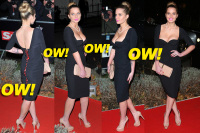



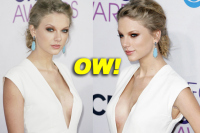

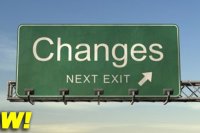
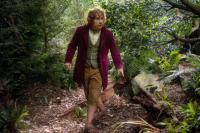
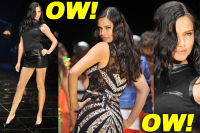
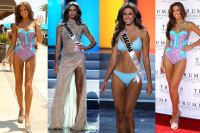
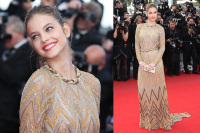


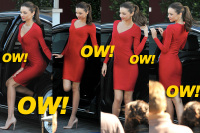
















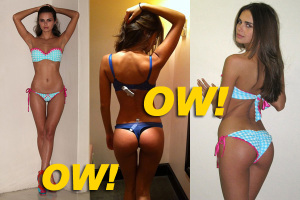
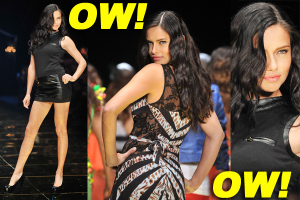
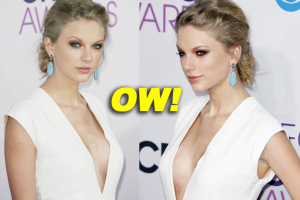




Definitely hitting it this weekend!